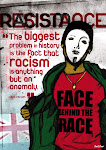Postcards From The Edge: DRCongo
Wednesday October 29, 2008
Campfire, shooting stars, third world war and Fanta
Tonight we lived it up in the luxurious village of Kinkosi in the Congolese region of Bas Congo - we had a mosquito swamped hole for a toilet, giant red ants nipping at our legs, a derelict spider-filled hut for 15 of us to sleep in and all the plantain, fufu and rice a heart could desire. Sarcasm aside, it was brilliant.
We spent much of the day watching the village men catch our fish for dinner, witnessing the hard graft and tiresome routine that provides them with sufficient meals for a season. I was itching to get stuck in and help the guys soldier through, but Lord knows I'd probably fuck up the process, or just look like a sitting British duck in the mushy pits.
As the nets were gathered, 17 year old fisher-boy Balamika stated he had walked 4km bare foot to the compound in order to work and gain enough funds for his schooling in the afternoons. He said: "I enjoy my job, there's nothing bad about it. But I want to study in my spare time so I can become a builder in my village. My family and I will be disappointed if I don’t become one."
It was another glimpse of the compassion and communal pride of the Congo.

As the burning sun set (much to our lobster-skin relief), we sat around a campfire with the locals, sipping the generous donation of honey wine and ice-cold Fantas (in glass bottles!), listening to fables of olde Congolese times. Above us, shooting stars glistened, in the distance we saw flashes of distant thunder and lightening. The atmosphere was priceless - the kind that sends a shiver, and makes you reluctant to return to the gloomy, grey, smouldering shade or crap that can be London town.

The people reminded us what impact we were making and how we were held in such high regard, as our translator Betty Mizele led in a song for us strangers of the Western world. I don't know what the hell she was saying - I couldn't translate her Lingala words. But we sung for the moment, before Betty finished with a lasting solo a capella:
"Let me just sing alone,
To say how wonderful you are,
You are wonderful,
You are wonderful."
Herein lays the real riches of the Congo.
Then came the news. We were told of war breaking out in Goma, East of Congo. Word quickly spread of over 60,000 people fleeing from the conflict between the DRC military, Gen Nkunda's Tutsi rebel fighters and the Rwandan Hutus. It was a lot to take in with no access to Internet or contact with eastern offices to clarify fact beyond speculation and sensationalism.
I could not imagine the fear that would engulf our relations back home, let alone the terror that would inevitably spread across the Congo, especially for those in the war zone. It was a rude awakening to our picturesque moment around the campfire.
We all sent out texts on the emergency mobile phone. I jetted messages of love and reassurance to my family and girlfriend, letting them know that such is the colossal size of the Congo (being the third-largest country in Africa, covering 905,563 square miles, an area almost a quarter the size of the United States), we were as close to the war as London is to Moscow. Still, those details would bring little comfort.
I put my Fanta down and took a moment to reflect with a bitch-slapping realisation that Congo is about much more than songs, campfires and shooting stars. The people here have a struggle, they have beauty, they have life and they have death. We are here to bring that story home.
At the end of every day our group debriefed and had reflection time. Tonight, some prayed, some spoke, some stayed silent and meditated. Though I'm not usually one for a corny-ass song or prayer, I simply put it:
"I pray for those in Goma, and I just thank God that tonight my loved ones do not strive, fight, flee and die in war. Amen."
For the first and hopefully last time on this trip, I feel numb and I miss home.
This story can be sourced from here
















